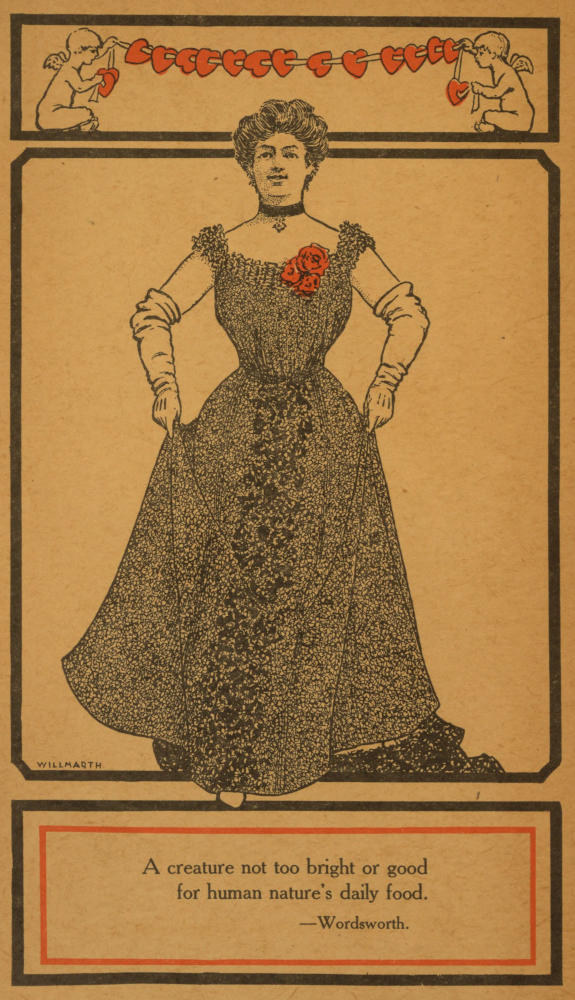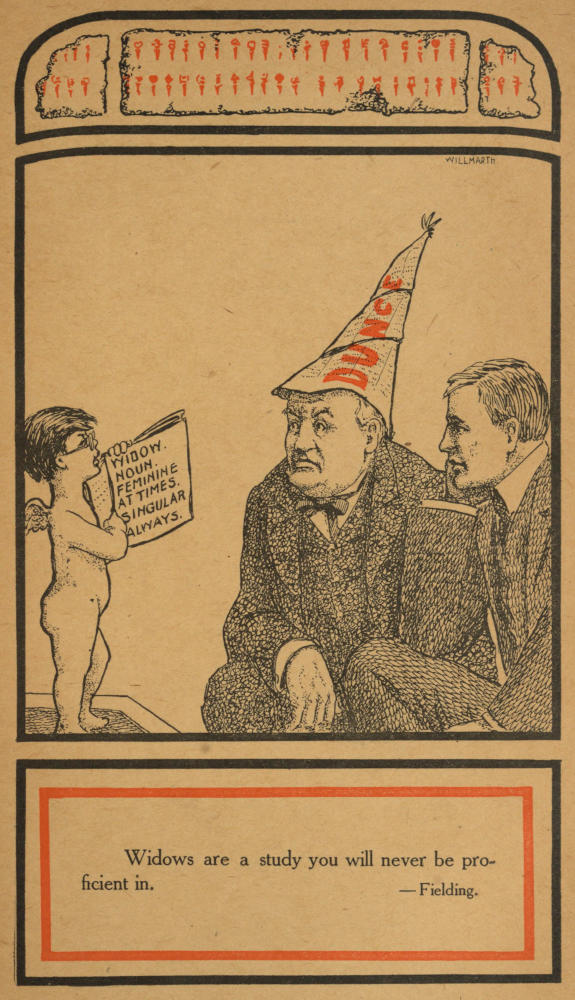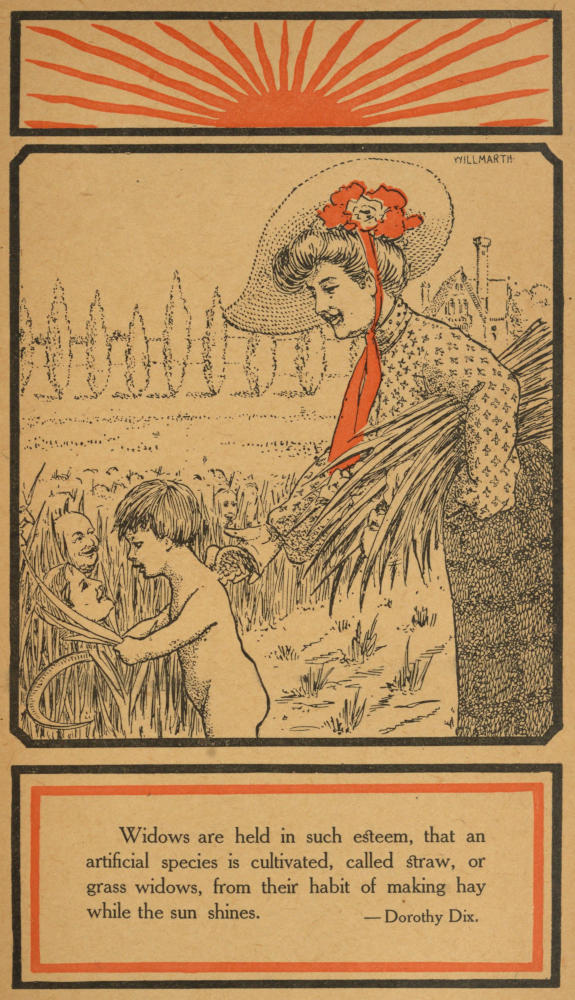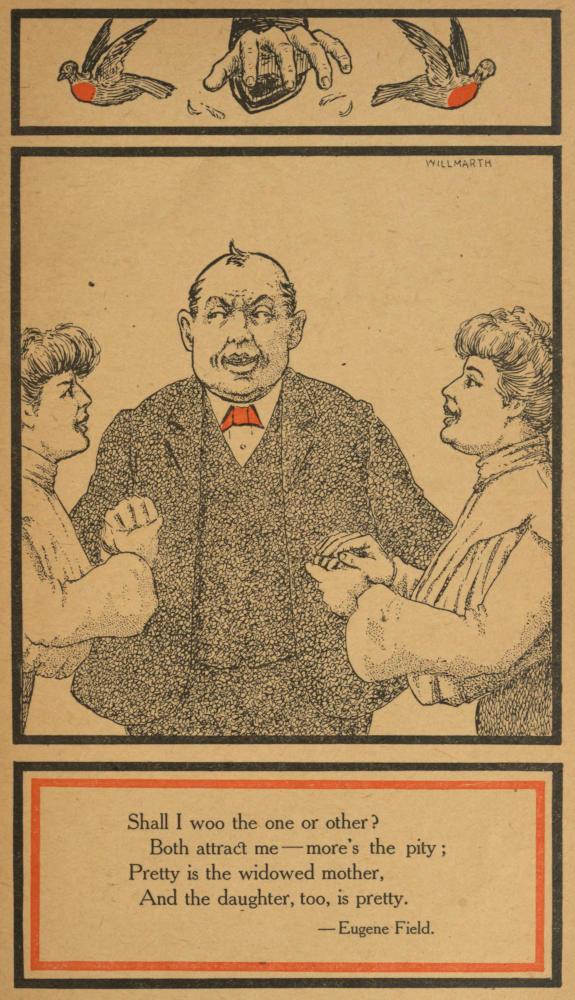January First
Widows, like ripe fruit, drop easily from their perch.
—Bruyere.
January Second
Wedlock’s like wine,—not properly judged of till the second glass.
—Douglas Jerrold.
January Third
The Spaniards have it that a buxom widow must be either married, buried, or shut up in a convent.
—Haliburton.
January Fourth
Frailty, thy name is woman! a little month, or ere those shoes were old with which she followed my poor father’s body, like Niobe, all tears:—why she, even she, married with my uncle.
—Shakespeare.






